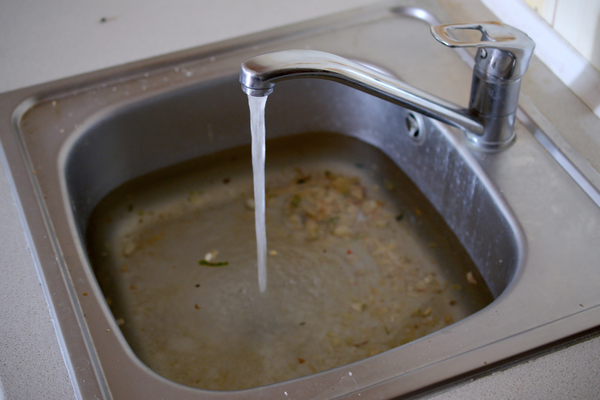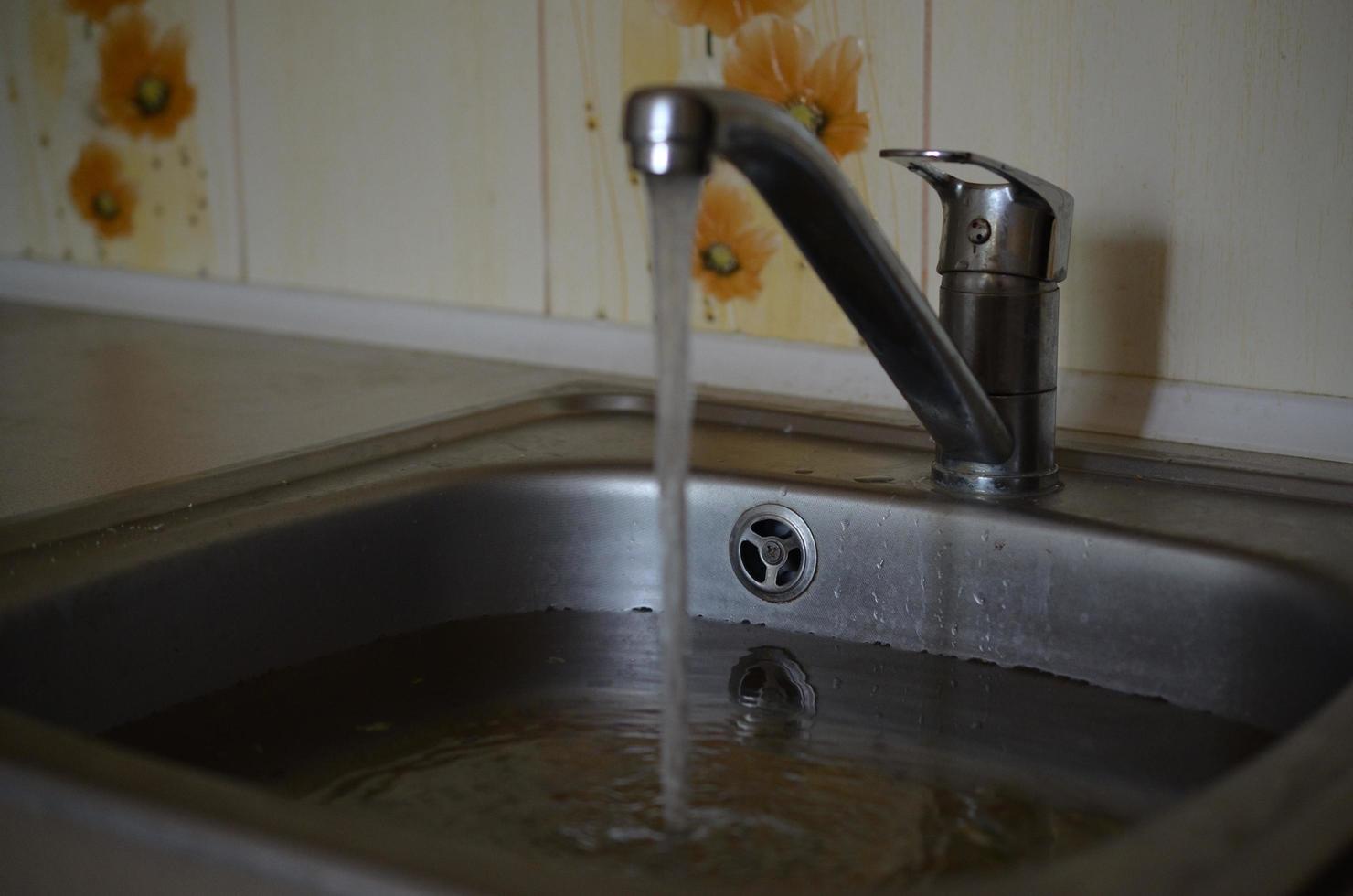Basic Ways To Resolve A Slow-Draining Sink
Basic Ways To Resolve A Slow-Draining Sink
Blog Article
What are your thoughts on How to Fix a Slow Draining Sink?

Introduction
We have actually all existed: You're cleaning your teeth or washing your hands, and you notice the water merging in the sink. Instead of quickly swirling away, it remains, transforming your once-refreshing morning routine into a miniature overload scene. A slow-draining sink isn't simply bothersome; it's often an indication of larger pipes issues prowling beneath the surface. The bright side is that the majority of slow-draining sinks can be fixed with a little know-how, a couple of standard devices, and some perseverance. All set to tackle this task head-on? Allow's roll up our sleeves and dive right in.
Recognizing the Sources Of a Slow-Draining Sink
Prior to you begin poking around in your pipes, it helps to know what might be creating the stagnation. Comprehending the source makes it simpler to pick the best solution.
Devices and Materials You'll Need
The right tools make all the distinction. Fortunately, you won't need a completely stocked plumbing professional's van to get the job done.
Step-by-Step Guide to Fixing a Slow-Draining Sink
Currently, let's enter into the nitty-gritty. This detailed process will certainly direct you via easy techniques to recover your sink's water drainage.
Step 1: Eliminate and Tidy the Stopper
Commonly, the stopper (that small plug you push down to block water) is the initial culprit. Remove it very carefully and wipe any hair or gunk caught around its base. Rinse it extensively prior to placing it back in position.
Step 2: Use a Bettor to Displace Particles
Got that plunger ready? Placement it over the drain and give it a few firm pumps. The idea is to create suction that can loosen up any type of obstruction. If you see little bits of debris floating up, you're on the appropriate track.
Step 3: Try a Drainpipe Serpent or Wire Hanger
If the bettor doesn't work, it's time to draw out the drain serpent. Carefully feed it right into the drainpipe and twist as you go. You might really feel some resistance-- that's likely the clog. Keep turning and pulling until you get rid of the obstruction. If you do not have a drain snake, a straightened cable wall mount can work in a pinch.
Tip 4: Apply a DIY Drainpipe Cleanser
An all-natural cleaner made from baking soft drink and vinegar can break down residual crud. Pour half a cup of cooking soda into the drainpipe, followed by half a mug of vinegar. Allow it fizz for about 15 minutes, after that flush with warm water. This chain reaction usually does wonders for minor obstructions.
Tip 5: Reassemble and Evaluate the Sink
Put whatever back with each other and run the tap. Does the water now swirl down the tubes at a decent speed? If yes, provide on your own a pat on the back. Otherwise, don't misery-- there are still a couple of even more tricks up your sleeve.
Vital Tools for DIY Repair Works
A plunger is your best beginning point. A small, sink-sized bettor produces suction that can displace small clogs. For even more consistent blockages, a drainpipe serpent (sometimes called a plumber's auger) functions wonders. A set of handwear covers, a flashlight, and possibly a pair of protective safety glasses are additionally useful.
Recommended Cleaning Solutions
Moderate dish soap and warm water can assist break down greasy build-up. A blend of baking soda and vinegar is a reliable natural home remedy, and chemical cleaners offer a more environmentally friendly strategy. Maintain chemical drain cleansers as a last resource, as they can be rough on your pipes.
Common Culprits Behind Slow Water Drainage
So, what's clogging things up? Typically, it's a combination of daily particles-- think hair, soap scum, tooth paste deposit, and leftover food bits. With time, these tiny bits accumulate and cling to the pipe walls, gradually tightening the flow and making it harder for water to pass through. In many cases, natural resource from hard water can also contribute to the substance, producing the perfect tornado for stubborn blockages.
When is it Time to Act?
If you notice the water draining pipes slower than usual, it's a good concept to intervene quicker as opposed to later. Waiting as well long can lead to finish clogs, unpleasant odors, and even pipeline damage. If the water takes more than a couple of secs to clean out after turning off the tap, consider it a warning and get ready to put on your DIY hat.
Security First: Precautions and Preparations
Prior to you launch into unclogging setting, think of safety and security. You're managing possibly unclean water and debris, so slip on a set of handwear covers. If you're using chemical cleaners, make certain the space is well-ventilated and adhere to the instructions on the tag.
Safety Gear and Work Space Arrangement
Put down some old towels or dustcloths around the sink area to capture splashes. Eliminate any type of items that could get in your way, like soap dispensers or tooth brush holders. See to it you have great lights-- get a flashlight if required.
Different Methods for Stubborn Clogs
Not all blockages are produced equivalent. If your sink still declines to work together, consider these alternate services.
Baking Soda and Vinegar Method
We currently touched on this, yet it's worth noting once more. This gentle, environment-friendly approach is more secure than chemical cleansers and often fairly efficient.
Chemical Drain Cleaners
Enzyme-based cleaners utilize natural germs to absorb raw material. They're an outstanding selection if you're looking to prevent rough chemicals. Simply bear in mind, they may take a bit longer to function their magic.
Chemical Drain Cleaning Company: Benefits And Drawbacks
Chemical cleansers can blow up with tough clogs fast, however they're not without disadvantages. They can produce warmth and fumes, damages pipes if used exceedingly, and present environmental risks. Utilize them moderately, and always follow the instructions carefully.
Preventive Measures to Maintain Your Sink Flowing
Prevention is the very best cure. By taking on a few basic routines, you can keep your sink from slowing down in the first place.
Regular Cleansing Behaviors
Wipe down the sink container and component location frequently. Get rid of hair or food particles prior to they have an opportunity to wash down the drainpipe.
Staying Clear Of Damaging Materials Down The Tubes
Reconsider before dumping coffee premises, oil, or fibrous veggie scraps down the sink. These culprits hold on to pipe walls, creating clogs with time.
Regular Upkeep Checks
Arrange a fast regular monthly assessment. Run hot water via the sink for a couple of minutes, taking note of the circulation. If it appears sluggish, act quick prior to it becomes a full-blown clog.
When to Call a Specialist Plumber
In some cases, despite just how difficult you attempt, that obstruct just won't budge. That's when it's time to generate the pros.
Indicators That Show a More Severe Issue
If your sink drains pipes slowly regardless of multiple efforts, or if you notice water backing up in various other components (like your shower or toilet), you may have a more significant plumbing concern lurking deeper in the system.
Balancing DIY Initiatives with Specialist Aid
While do it yourself can save you cash and provide a feeling of success, there's no shame in calling a specialist. A professional plumber can evaluate your entire pipes setup, ensuring there's no underlying damage or lasting issue that could cost you more later on.
Contrasting Expenses and Long-Term Solutions
Before choosing, take into consideration the big picture. An economical, quick fix may solve the problem momentarily, however investing in a much more permanent service could conserve you cash and stress and anxiety in the future.
Weighing the Expenses of Do It Yourself vs. Expert Solutions
Do it yourself fixes usually set you back little more than the cost of a bettor or a container of cooking soft drink. Professional services, on the other hand, included a cost yet might prevent repetitive concerns and pricey repairs later.
Investing in Quality Fixtures and Upgrades
If your sink's design adds to constant clogs, it might be worth updating to higher-quality fixtures or modifying the pipes design. Consider this an investment in your house's performance and comfort.
Verdict
A slow-draining sink can feel like a minor inflammation, but it's frequently a sign that your pipes needs a little tender loving care. By comprehending the origin, utilizing the right devices and techniques, and devoting to easy safety nets, you can maintain your sink flowing easily. And when all else falls short, never ever be reluctant to hire an expert-- your home's plumbing is worth the investment in treatment and maintenance.
Three Common Ways to Fix a Slow Drain
Baking Soda Method
Boil a full pot of water. Measure out cup of baking soda and pour it down the drain. Then take cup of the magical cleansing substance known as white vinegar and drop that down there too. Allow the mixture to fizz in the drain for five minutes as the vinegar and baking soda combine. Now dump in that whole pot of boiling water. This combination of cleaning substances should clear out anything that is causing your sink to drain slowly. If it doesn t...
Zip-It
If the baking soda method doesn t clear out your drain, it may be because a significant amount of hair and/or other debris has collected there and you need to remove it. Purchase a Zip-It tool at any home improvement or hardware store and insert it into your drain. It will catch any collected hair or debris that s blocking the flow of water. Pull it out. If it s got a big clump of hair, etc. on the end, you ve probably got your culprit.
Drain Cleaner
If these methods don t work, there is the standard drain cleaner that you can also buy in a hardware store or even your local grocery store. It s better if you can use a household solution, but these drain cleaners often work in a pinch. They re very simple to use. You generally just dump them in your drain and wait. If even this method is not effective, it may be time to call the plumber.
https://www.mrrooter.com/oneida/about-us/blog/2017/july/three-common-ways-to-fix-a-slow-drain/

Do you really like reading about How to Fix a Slow Draining Sink? Leave a review below. We would be pleased to find out your responses about this blog entry. Hoping to see you back again soon. Kindly take the time to share this write-up if you appreciated it. I treasure reading our article about How to Fix a Slow Draining Sink.
Call Today Report this page